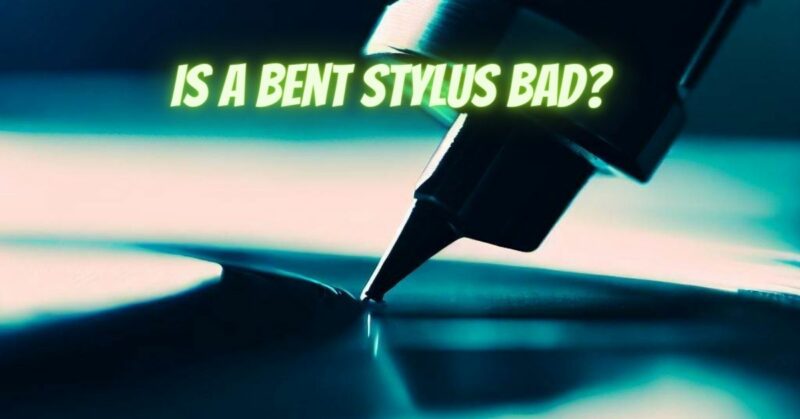The stylus, or needle, is a critical component of your turntable setup, responsible for making direct contact with the grooves on your vinyl records and producing the music you love. When it comes to stylus care, one common concern is whether a bent stylus is bad and how it can affect your listening experience. In this article, we will explore the implications of a bent stylus and whether it’s a cause for concern.
The Anatomy of a Stylus
Before delving into the impact of a bent stylus, it’s helpful to understand the key components of this delicate instrument:
- Tip Material: Stylus tips are typically made from hard materials like diamond, sapphire, or other precision-engineered materials. The tip’s hardness is essential for accurate groove tracking.
- Cantilever: The stylus is attached to a thin, flexible rod called a cantilever. The cantilever serves as the mechanism that transfers the movements of the stylus tip to the cartridge’s coils.
- Cartridge: The cartridge houses the stylus and contains coils that generate electrical signals from the stylus’s movements. The cartridge is then connected to your turntable’s tonearm and wiring.
Impact of a Bent Stylus
A bent stylus can have several consequences for your turntable and listening experience:
- Tracking Problems: A bent stylus may struggle to maintain consistent tracking force and proper contact with the record grooves. This can result in tracking issues, where the stylus may skip, jump, or mistrack.
- Groove Damage: A bent stylus can potentially cause damage to the record grooves, especially if it scrapes or gouges the surface as it plays. This not only affects the playback quality but can also harm your precious vinyl records.
- Reduced Sound Quality: Stylus alignment is crucial for accurate sound reproduction. A bent stylus may cause misalignment, leading to a reduction in sound quality, including distortion and reduced dynamics.
- Uneven Wear: A stylus that is not properly aligned can experience uneven wear. Some parts of the stylus may wear down faster than others, resulting in imbalanced playback and a shorter stylus lifespan.
- Cantilever Stress: The cantilever, which supports the stylus, can experience stress when the stylus is bent. Over time, this stress can lead to further stylus or cantilever damage.
Should You Be Concerned?
If you discover that your stylus is bent, it’s important to take it seriously. Here are some steps to consider:
- Inspect and Assess: Examine the stylus carefully under magnification to determine the extent of the bend and whether it is affecting playback.
- Listen for Issues: Play a record and listen for any noticeable tracking problems, distortion, or changes in sound quality. These may indicate that the bent stylus is impacting your listening experience.
- Seek Professional Evaluation: If you’re unsure about the condition of your stylus or if you notice any issues, consider consulting a professional turntable technician or cartridge specialist for a comprehensive evaluation.
- Replacement: If the stylus is significantly bent or causing playback problems, it is advisable to replace it with a compatible, high-quality replacement stylus or cartridge.
A bent stylus is a potential concern for your turntable and vinyl records. While not all instances of a bent stylus will result in severe damage, it’s essential to assess the extent of the bend and monitor its impact on playback quality. If you notice any issues or have concerns about the condition of your stylus, taking prompt action, such as seeking professional evaluation or replacement, can help preserve your turntable’s performance and protect your cherished vinyl collection.


